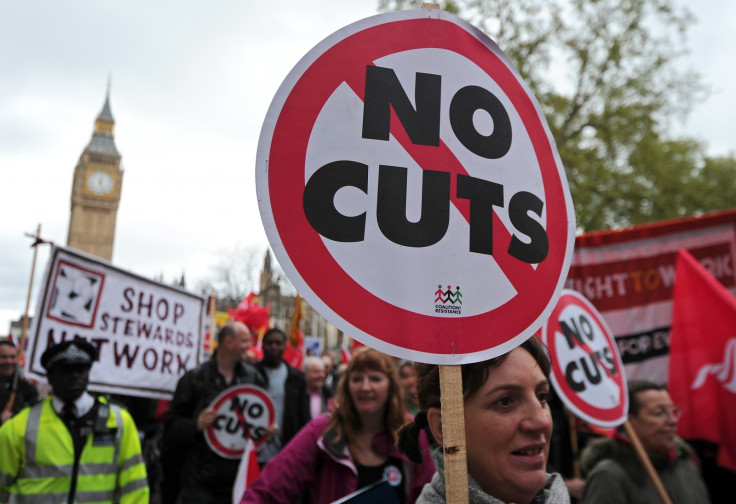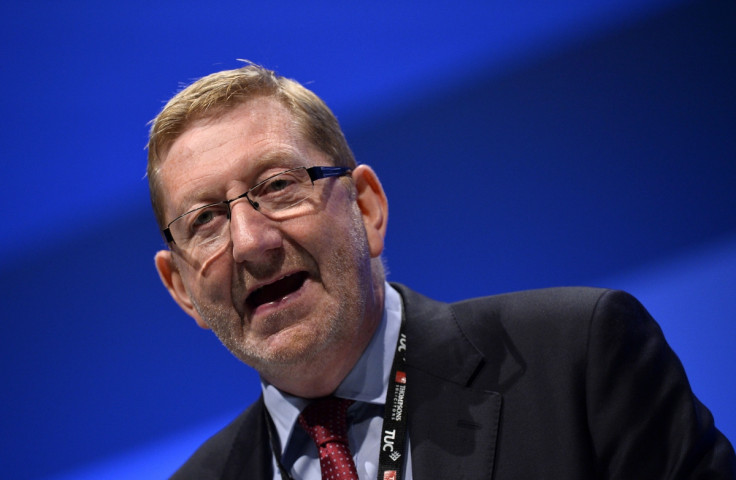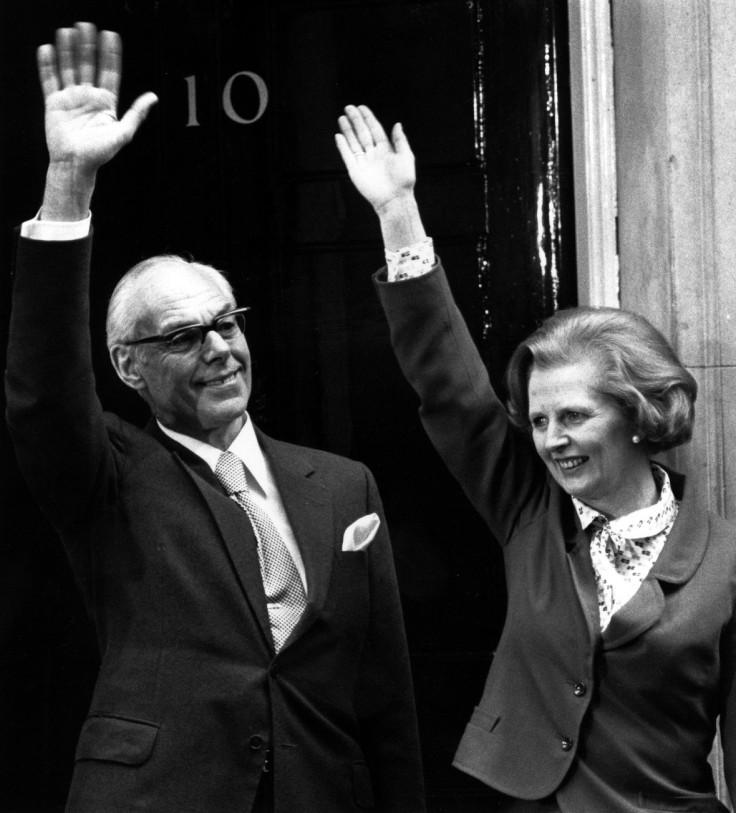General strike: Will Britain face a mass union walkout under a Conservative government?

A majority Conservative government caught most by surprise, not least the unions, which face another onslaught of public spending cuts under Chancellor George Osborne's ongoing austerity programme to balance the Treasury's books.
But more than that, unions face the near-decommissioning of the nuclear option in their arsenal of weapons to be used in trade disputes – their right to strike. The government intends on tightening the rules around balloting for strike action by imposing a minimum turnout threshold.
Amid this are rumblings of a return to the old clashes between the right and left, with unions working together in opposition to what they argue are unfair and unnecessary cuts as well as an all-out assault on the rights of working people to organise demonstrations against the bosses.
A spokesman for PCS, a union for public sector workers, told IBTimes UK:
The shock, disappointment and anger at the prospect of another five years of the Tories is turning to determination for many in the labour movement.
We are absolutely clear that, to defend jobs, our NHS, welfare state and other vital public services, as well as improve living standards for everyone, the unions will need to come together like never before and take the fight to this Tory government.
One of the rumblings is a general strike, a coordinated and political walkout that would threaten to bring the country screeching to a halt just as in 1926, when workers downed tools for nine days against prime minister Stanley Baldwin's Conservative government.
There are no formal talks currently happening between unions about the prospect of a general strike, though it is expected to come up in discussions. It is still early days of the parliament. When union activity peaked again in 2012, and there was coordinated union action as the government's austerity cuts started to bite, the Unite general secretary Len McCluskey cast the shadow of a general strike over the UK.
"We won't get what we want simply by asking," he said at a TUC rally, to a roaringly supportive crowd. "There was a motion at the TUC to consult on a general strike. We were asked to look at the practicalities and start a consultation. Well let's start the consultation today. Are you prepared to strike?"

That was referring to a 2012 motion put before the TUC to explore the practicalities of a general strike under the law as it stands amid the first wave of austerity cuts. But, as far as IBTimes UK understands, the conclusion was that a general strike would not be lawful.
Under Margaret Thatcher's reforms in the 1980s, the laws governing unions were tightened following years of intense battles between them and the government. During the 1970s, industrial action by coal miners caused the UK government to introduce a three-day working week to conserve electricity.
Thatcher depoliticised strike action so that the only lawful strikes that can take place must be tied to a trade dispute. In essence, this outlawed a general strike. Unions have tried to get around this by coordinating their different strike actions over things like pay and pensions to take place on the same day, to have a greater impact.
And Thatcher made strike action only lawful by proper postal balloting of union members, rather than the impromptu show of hands approach that ground the country to a halt so many times in the 1970s.

Now the Conservative party, armed with its majority, wants to finish off what Thatcher started. The party is planning to bring in rules that mean at least 40% of those entitled to vote must turn out for a ballot to be valid, with a majority voting in favour of action for it to take place. In particular, the government wants to shield key public services, such as the fire service and London Underground, from the impact of strikes.
Unions are not necessarily hostile to the idea of ensuring strike action is taken on the basis of bigger turnouts. But they argue that the government is effectively trying to curb legitimate strike action by not reforming the archaic rule that determines every such ballot must take place by postal vote. Unions want it to be brought into the 21st century by allowing digital balloting to be authorised, which they believe will significantly increase turnouts. The government has not committed to do this.
A spokesman for the TUC told IBTimes UK:
Defending the democratic right to strike from restrictive rules the new government is proposing will be a top priority for the TUC.
The proposals are an attack on basic democratic rights. By making legal strikes close to impossible in many sectors it will leave representatives of hardworking people with as much power as Oliver Twist when he asked for more. The TUC campaign will reach out across society to everyone who believes in democratic rights.
In the last year, the TUC's Britain Needs a Pay Rise campaign, Fair Pay Fortnight and Decent Jobs Week have pushed fair wages and the problems of poor quality jobs like zero-hours contracts up the political agenda. We will continue our campaigning for jobs, growth, good public services and decent welfare.
A general strike is almost certainly off the cards. One source in a major union said it was completely off the agenda, while another said it categorically would not happen.
Those unions operating in the private sector would face lawsuits from businesses losing out off the back of politically motivated strike action, and could face closure by the stripping of their assets – the penalty if their strike was found to be unlawful.
It would be much easier for public sector unions to take politicised strike action – which some argue is technically legal under European human rights law, which the UK government is trying to sidestep by scrapping the Human Rights Act – because they are less likely to be taken to court.
But there is a feeling among some in the union movement that if unions do not put up a fight against a majority Conservative government, and a big fight at that, then their very purpose will be brought into question by the workers they represent.
How that fight will manifest itself – more coordinated strike action, more dialogue, an aggressive media campaign, uniting left-wing MPs in the Commons – is yet to be seen.
© Copyright IBTimes 2025. All rights reserved.





















